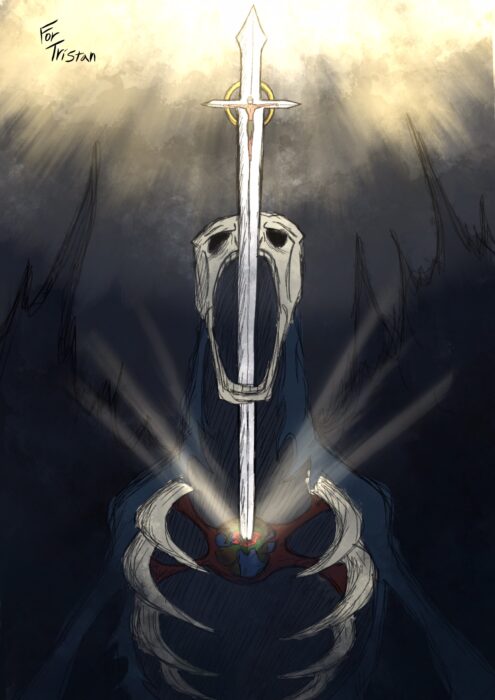
“Jesus, knowing that the Father had given all things into His hands, and that He had come from God and was going back to God, rose from supper. He laid aside His outer garments, and taking a towel, tied it around His waist. Then He poured water into a basin and began to wash the disciples’ feet…”
John 13:3-5
Ascending the Foothills of Love’s Everest
This is an amazing passage. To begin with, it’s important to note that John has already framed this scene within the context of Christ’s perfect and to-the-end love for His people. He makes this clear in verse one:
“having loved His own who were in the world, He loved them to the end”
John is setting us up to recognize that in these verses we are peering into the heart of Love Himself. Over the next few chapters, the readers of John’s gospel are going to be swept upward into the dizzying mountain heights of divine love, climaxing in the outpoured life of God the Son, and our ascent begins here, with a foot washing.
The Sort of Heart that Washes Feet
In order to see the beauty of Christ’s actions here, we need to notice something in verse 3, namely, that Jesus knew that all authority was given to Him by the Father and that He had come from manifest glory in the presence of the Father and was returning to that manifest glory. Here, sitting in the upper room, eating dinner with His friends, is God the Son. And because Jesus knows this about Himself, He rises from the table.
Now, I say “because” of this knowledge rather than “in spite” of this knowledge very intentionally. If I were to say, “Jesus knew He had all the glory and authority of God, and in-spite of that, He still served His friends,” I would be implying that there is dissonance between the glory (i.e., character) of God and service to the beloved. This is not the case! In fact, God’s glory is most manifest, His “God-ness” is proclaimed most clearly through an act of self-giving love like this washing of the disciples feet (or, far more completely, the Son’s death on the cross). So, because Jesus had all the glory and authority of God, He acted like God and gave Himself for the good of the beloved…..first by washing their feet, then by laying down His life.
Slow Motion
Next, notice the detail with which John walks us through this process. It is as if the evangelist puts his narrative into slow motion so that we are forced to focus on the wonder of Christ’s condescending love. John breaks this act of the Lord’s love into seven sections.
Jesus:
1) rose from supper
2) laid aside His outer garments
3) took a towel
4) tied it around His waist
5) poured water in a basin
6) washed His disciples’ feet
7) wiped their feet with the towel wrapped around Him.
Now, John could simply have said, “Jesus washed their feet,” but he wanted us to linger there…here wanted us to see it happening, he wanted us to worship and wonder with him that the Lord of Glory, the Eternal Word, would clothe Himself as a servant for His beloved ones. Awesome.
A Miniature “Incarnation”
Essentially what we see in this foot-washing account is a microcosmic parable of the incarnation. Just as Jesus rises from His place of privilege at the table and sets aside His outer garments for those of a servant, so Paul tells us that Jesus did not count equality with God something to be used for His own advantage, but He made Himself nothing, taking on the form of a servant by becoming a human being (Philippians 2:6). Just as He entered into our lowly state in order to lift us to Himself, so here, God the Son lowers Himself to the task of a slave in order to show His disciples the heights of love….This is the love of God on display….this is glory on display, holiness on display, YHWH on display…..He is the God who wields His sovereign authority in self-giving love for the good of His people.
May we first and foremost see our God’s heart in Christ and recognize Him to be the most beautiful reality in all existence. And then–as an overflow of this all-satisfying sight–may we be conformed to the same image of life-laying-down love for those around us. For His Name’s sake.



